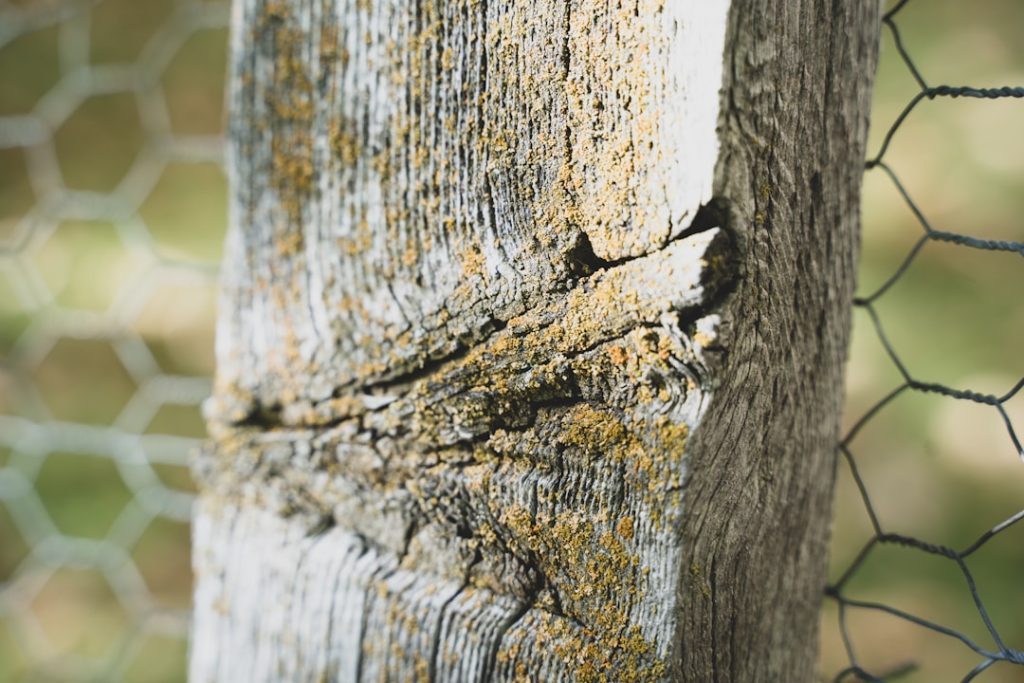Chickens may enter residential yards for various reasons. They are often attracted by food sources such as insects, seeds, or discarded scraps. These birds may also seek shelter or nesting sites for egg-laying.
Chickens are naturally inquisitive and may explore new areas out of curiosity. In some cases, they may belong to neighbors who allow free-range practices, resulting in unintentional trespassing. The presence of chickens can lead to several issues.
They can damage gardens, lawns, and flower beds through their scratching and pecking behaviors. Chicken droppings can be unsightly and pose potential health hazards. In rare instances, chickens may display aggressive behavior towards pets or young children.
As social creatures, chickens may seek companionship or security in unfamiliar environments. They may be drawn to the presence of other animals or readily available food sources. Understanding these motivations can help homeowners develop effective strategies to prevent chickens from entering their property and mitigate any associated problems.
Table of Contents
- 1 Legal considerations: What are the laws regarding keeping chickens in residential areas?
- 2 Physical barriers: How can I keep chickens out of my yard with fencing and other barriers?
- 3 Natural deterrents: What plants or scents can I use to repel chickens?
- 4 Humane solutions: How can I discourage chickens from entering my yard without harming them?
- 5 Neighborly communication: How can I address the issue with the chickens’ owner in a respectful manner?
- 6 Seeking professional help: When should I involve animal control or other authorities in dealing with unwanted chickens in my yard?
- 7 FAQs
- 7.1 What are some effective ways to keep chickens out of my yard?
- 7.2 Why do chickens come into my yard?
- 7.3 Are there any legal restrictions on keeping chickens out of my yard?
- 7.4 What are the potential risks of having chickens in my yard?
- 7.5 How can I deter chickens from coming into my yard without harming them?
Key Takeaways
- Chickens may be in your yard due to access to food, water, shelter, or simply wandering from their owner’s property.
- Laws regarding keeping chickens in residential areas vary by location and may include restrictions on the number of chickens, coop requirements, and noise regulations.
- Fencing, netting, and motion-activated sprinklers can help keep chickens out of your yard.
- Plants such as marigolds, lavender, and mint, as well as scents like citrus and vinegar, can act as natural deterrents for chickens.
- Humane solutions to discourage chickens from entering your yard include removing food sources, using noise deterrents, and providing alternative areas for the chickens to roam.
- Address the issue with the chickens’ owner in a respectful manner by discussing the problem and potential solutions, and working together to find a resolution.
- Involving animal control or other authorities may be necessary if the chickens pose a threat to safety, are causing significant damage, or if the owner is uncooperative in resolving the issue.
Legal considerations: What are the laws regarding keeping chickens in residential areas?
Understanding Local Ordinances
Many cities and towns have specific ordinances that regulate the keeping of livestock, including chickens, within city limits. These ordinances may address issues such as the number of chickens allowed per property, the construction of coops and enclosures, and the disposal of waste.
Researching Local Regulations
In some areas, keeping chickens may be prohibited altogether, while in others, there may be specific guidelines that must be followed to keep chickens legally. It’s crucial to research the specific regulations in your area to ensure that you are in compliance with the law.
Addressing the Issue with Your Neighbor
If the chickens in your yard belong to a neighbor, it’s possible that they may also be in violation of local ordinances. In this case, it may be helpful to have a conversation with your neighbor about the issue and work together to find a solution that is in compliance with local laws.
Physical barriers: How can I keep chickens out of my yard with fencing and other barriers?

One effective way to keep chickens out of your yard is to install physical barriers such as fencing or netting. This can help to prevent chickens from gaining access to your property and can also protect your garden and other outdoor spaces from damage. When choosing a fencing or netting material, it’s important to select something that is sturdy and secure.
Chicken wire or hardware cloth are popular choices for keeping chickens out, as they are durable and can withstand the pecking and scratching of the birds. It’s also important to ensure that the fencing is installed properly and securely to prevent the chickens from finding a way to squeeze through or under it. In addition to fencing, other physical barriers such as motion-activated sprinklers or noise-making devices can also be effective at deterring chickens from entering your yard.
These types of barriers can startle the chickens and encourage them to seek out a more peaceful location.
Natural deterrents: What plants or scents can I use to repel chickens?
In addition to physical barriers, there are also natural deterrents that can be used to repel chickens from your yard. Certain plants and scents are known to be unappealing to chickens and can help to discourage them from entering your property. Plants such as marigolds, lavender, and rosemary are known for their strong scents, which can help to repel chickens.
These plants can be strategically placed around the perimeter of your yard or garden to create a natural barrier that chickens will be less likely to cross. In addition to plants, certain scents such as citrus, vinegar, or hot peppers can also be effective at repelling chickens. These scents can be used in the form of sprays or repellent solutions that can be applied to areas where chickens are likely to enter.
It’s important to note that while natural deterrents can be effective at repelling chickens, they may also affect other wildlife or pets in the area. It’s important to use these deterrents carefully and consider their potential impact on other animals.
Humane solutions: How can I discourage chickens from entering my yard without harming them?
When dealing with unwanted chickens in your yard, it’s important to consider humane solutions that will discourage the birds from entering your property without causing them harm. One option is to provide an alternative source of food and water for the chickens in a location away from your yard. By providing food and water elsewhere, you may be able to encourage the chickens to spend more time in a different area.
Another humane solution is to use visual deterrents such as scarecrows or reflective objects that can startle the chickens and discourage them from entering your yard. These types of deterrents can be effective at keeping chickens away without causing them any harm. It’s also important to avoid using any harmful substances or traps that could injure or kill the chickens.
Instead, focus on non-lethal methods that will encourage the birds to seek out a different location.
Neighborly communication: How can I address the issue with the chickens’ owner in a respectful manner?

Initiating the Conversation
If the chickens in your yard belong to a neighbor, it’s essential to address the issue with them in a respectful and considerate manner. Start by having a conversation with your neighbor about the problem and express your concerns about the presence of the chickens in your yard.
Understanding Each Other’s Perspectives
During this conversation, it’s crucial to listen to your neighbor’s perspective and try to understand their reasons for allowing their chickens to roam freely. They may not be aware of the impact that their chickens are having on your property, and by bringing it to their attention, you may be able to work together to find a solution.
Finding a Mutually Acceptable Solution
It’s also important to approach the conversation with a willingness to compromise and find a solution that is acceptable to both parties. This may involve discussing potential measures such as fencing or natural deterrents that can help to keep the chickens out of your yard.
Seeking Mediation if Necessary
If a resolution cannot be reached through direct communication with your neighbor, it may be helpful to involve a mediator such as a neighborhood association or community leader who can help facilitate a productive conversation and find a mutually agreeable solution.
If you have exhausted all other options for addressing the issue of unwanted chickens in your yard, it may be necessary to involve animal control or other authorities. This is especially true if the presence of the chickens is causing significant damage or posing a threat to the health and safety of you or your family. Before involving animal control or other authorities, it’s important to document any damage caused by the chickens and keep records of any attempts you have made to address the issue with the owner of the birds.
This information can be helpful in demonstrating the severity of the problem and the steps you have taken to resolve it. When contacting animal control or other authorities, it’s important to provide them with as much information as possible about the situation, including details about the number of chickens involved, their behavior, and any damage they have caused. By providing this information, you can help authorities understand the urgency of the situation and take appropriate action to address it.
In some cases, involving animal control may result in the removal of the chickens from your property or enforcement action against their owner. While involving authorities should be a last resort, it may be necessary in situations where all other efforts have been unsuccessful in resolving the issue.
If you’re looking for ways to keep chickens out of your yard, you may want to consider building a farmhouse chicken coop. This article from Poultry Wizard provides helpful tips and guidelines for creating a safe and secure space for your chickens to roost and lay eggs, which can help prevent them from wandering into your yard.
FAQs
What are some effective ways to keep chickens out of my yard?
Some effective ways to keep chickens out of your yard include installing a fence, using chicken wire or netting, using motion-activated sprinklers, and using natural deterrents such as citrus peels or vinegar.
Why do chickens come into my yard?
Chickens may come into your yard in search of food, water, or shelter. They are also known to be attracted to gardens and lawns where they can find insects, seeds, and other food sources.
Are there any legal restrictions on keeping chickens out of my yard?
The legal restrictions on keeping chickens out of your yard may vary depending on your location and local ordinances. It’s important to check with your local authorities to understand any regulations or restrictions regarding keeping chickens out of your yard.
What are the potential risks of having chickens in my yard?
Having chickens in your yard can pose several risks, including damage to gardens and landscaping, spreading of diseases, and attracting predators such as foxes or raccoons. Additionally, chickens may create noise and odor nuisances for neighbors.
How can I deter chickens from coming into my yard without harming them?
You can deter chickens from coming into your yard without harming them by using natural deterrents such as citrus peels, vinegar, or cayenne pepper. Additionally, installing physical barriers such as fences or netting can also be effective in keeping chickens out of your yard.
Meet Walter, the feathered-friend fanatic of Florida! Nestled in the sunshine state, Walter struts through life with his feathered companions, clucking his way to happiness. With a coop that’s fancier than a five-star hotel, he’s the Don Juan of the chicken world. When he’s not teaching his hens to do the cha-cha, you’ll find him in a heated debate with his prized rooster, Sir Clucks-a-Lot. Walter’s poultry passion is no yolk; he’s the sunny-side-up guy you never knew you needed in your flock of friends!







